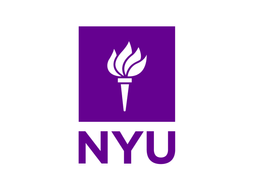U.S. Department of the Treasury Headquarters Student Internship Program - 10 Tips to Help You Land It
Joining an internship while in high school is becoming an increasingly important step in improving the prospects of your college admissions and future career opportunities. The skills you learn from exposure to real-life, practical challenges in a professional environment will stand you in good stead no matter which field you apply for, while also helping you demonstrate your commitment to your chosen field. Today’s blog post focuses on the internships offered by the U.S. Department of the Treasury Headquarters, how they can help you work on your skills and application, and how to go about securing a spot.
Why intern with the U.S. Department of the Treasury?
The U.S. Department of the Treasury plays a pivotal role in promoting economic prosperity and ensuring the financial security of the United States. Participating in its internship program allows you a rare, first-hand experience working in the heart of economic decision-making and policy formulation. You will gain firsthand experience in how national finances are managed, how policies that shape the economy are designed, and the intricacies of federal financial management.
The Treasury’s Departmental Offices offer unpaid internships that provide high school, undergraduate, and graduate students with work experience and direct exposure to careers in the federal government. You can choose to work in one of various capacities across their individual offices, supporting the Treasury's mission through research, data analysis, policy development, and more.
Who can apply?
The eligibility criteria are straightforward:
You must have U.S. citizenship.
You need to be currently enrolled in high school, an undergraduate, or a graduate program.
How does the application process work?
The internship applications are processed through www.usajobs.gov similar to a job application. You’ll need to create a profile, upload your resume and supporting documents, and search for an internship opening that you want to apply for in one of the offices. The internship cycles are:
Spring Internship Period (January-May): Apply in October.
Summer Internship Period (May-August): Apply in December.
Fall Internship Period (September-December): Apply in June.
How is the internship structured?
The first thing you will need to do is to determine which office of the Treasury you want to apply for. A smarter way to approach it is to be clear on what you yourself are interested in pursuing, and then search for opportunities in offices that allow you to work in those areas:
If you’re keen on what goes into boosting economic growth, you may want to work in the offices of:
Domestic Finance: Provides advice and assistance on domestic finance, banking, and economic matters, developing policies for financial institutions, federal debt finance, financial regulation, and capital markets.
Economic Policy: Analyzes current and future economic developments to guide economic policy decisions, focusing on both domestic and international economic issues and financial market developments.
Tax Policy: Develops tax policies and programs, oversees the administration of the Internal Revenue Code, negotiates tax treaties, and provides analysis for tax policy decisions and fiscal management.
If you’d rather understand the fundamentals of the economy and how to maintain financial stability, you should look at opportunities in the offices of:
Domestic Finance
International Affairs: Aims to enhance U.S. economic prosperity by improving the international economic environment, preventing financial instability globally, and addressing major global challenges.
The Office of Terrorism and Financial Intelligence (TFI): Formulates strategies to combat terrorist financing and financial crimes, both domestically and internationally, enhancing national security. There are also several offices that cater to the general functioning and operational excellence of the Treasury, namely:
Diversity, Equity, Inclusion, and Accessibility: Acts as a hub for enhancing and enforcing diversity, equity, inclusion, and accessibility strategies across all Treasury departments and offices, ensuring a unified approach and accountability.
General Counsel: Offers legal and policy advice to the Treasury Secretary and senior officials, leading the Treasury Legal Division that encompasses all departmental legal counsels.
Legislative Affairs: Advises on congressional relations to shape policy and department direction, acting as the main liaison between the Treasury, Congress, the White House, and other agencies.
Management: Manages internal department policies in budgeting, planning, human resources, IT, financial management, procurement, privacy, records, and administrative services.
Financial Research: Established by Congress to support the Financial Stability Oversight Council and the public with high-quality financial data and research on financial stability and risk management best practices.
Financial Stability: Created to administer the Troubled Asset Relief Program (TARP) with the goal of stabilizing the U.S. financial system and fostering economic recovery after the 2008 crisis.
Public Affairs: Develops communication strategies for the Department, guiding how officials communicate public interest issues and priorities within and outside the bureaus.
Recovery Programs: Leads the implementation of economic relief and recovery initiatives to address the economic impacts of the COVID-19 pandemic.
Treasurer of the United States: Oversees the Bureau of Engraving and Printing and the United States Mint, serving as a key advisor and representative in community development and public engagement.
In short, almost regardless of your chosen field of interest, there is likely to be an internship position suited to you. From social sciences, to management, law, and STEM, all kinds of students are welcome and needed here. As an intern, you will get the chance to:
Engage in tasks that support policy priorities and mission areas.
Learn about federal budget formulation, strategic planning, and organizational performance evaluation.
Experience mentorship from seasoned professionals.
Analyze economic data, draft briefing materials, attend Congressional hearings, or even organize high-level meetings.
Is it prestigious?
The Treasury Internship is highly prestigious, offering a rare glimpse into the workings of a key federal agency. The internships are selective in the sense that any job interview is selective, ensuring that you need to demonstrate your motivation and capability amongst a nation-wide pool of candidates. You will get substantive career experience here, while developing your leadership, management, and analytical skills. It is the perfect opportunity to get insights into different career paths in the public sector, and even more valuable for the professional networks you will build during your time here. If you’re serious about a future in the Treasury or in government in general, then you should strongly consider applying for an internship here.
Tips to help you secure an internship
Understand the Treasury's mission: Familiarize yourself with the Treasury's role in promoting economic prosperity and ensuring the financial security of the United States. Demonstrating a clear understanding of the agency's objectives in your application and interview can set you apart.
Highlight relevant coursework: Since the Treasury seeks students from a broad range of fields, including economics, political science, public policy, and STEM, make sure to highlight relevant coursework that aligns with the Treasury's work.
Showcase analytical skills: Emphasize any experience with data collection, analysis, and presentation, as these are key tasks interns may be involved in. Include examples from school projects, previous internships, or work experience.
Demonstrate leadership and management potential: The internship aims to develop lifelong leadership and management skills. Provide examples of leadership roles, team projects, or initiatives you've led that showcase these abilities.
Express interest in public sector careers: Show your genuine interest in exploring career avenues in the public sector. Mention any previous experiences or engagements with public service, including volunteer work, model UN, debate clubs, or participation in government-related programs.
Prepare for the application process: All applications are processed through www.usajobs.gov. Create an account in advance, familiarize yourself with the platform, and ensure your resume is updated and tailored to the internship.
Mind the deadlines: Pay close attention to the application deadlines for the different internship periods (spring, summer, fall) and plan to submit your application well in advance.
Request strong letters of recommendation: Secure letters of recommendation from teachers, counselors, or professionals who can speak to your qualifications, character, and interest in economics, finance, or public policy.
Craft a compelling personal statement: Write a personal statement that not only reflects your academic and professional interests but also demonstrates how the internship aligns with your career goals and aspirations.
Prepare for interviews: If selected for an interview, prepare by reviewing current economic and financial news, understanding the Treasury's latest initiatives, and being ready to discuss how your background makes you a good fit for the internship.
If you’re looking to gain research experience alongside your internship, consider applying to Horizon’s Research Seminars and Labs!
This is a selective virtual research program that lets you engage in advanced research and develop a research paper on a subject of your choosing. Horizon has worked with 1000+ high school students so far and offers 600+ research specializations for you to choose from.
You can find the application link here
Lumiere Research Scholar Program
If you’re interested in pursuing research in economics and finance, you could also consider applying to one of the Lumiere Research Scholar Programs, selective online high school programs for students I founded with researchers at Harvard and Oxford. Last year, we had over 4000 students apply for 500 spots in the program! You can find the application form here.
Stephen is one of the founders of Lumiere and a Harvard College graduate. He founded Lumiere as a PhD student at Harvard Business School. Lumiere is a selective research program where students work 1-1 with a research mentor to develop an independent research paper.
Image Source: U.S. Department of the Treasury seal




